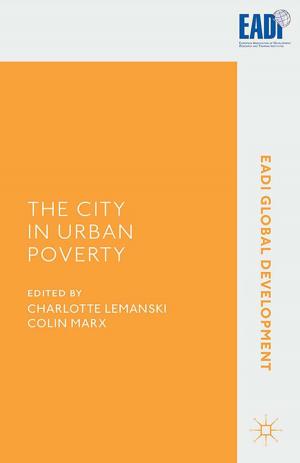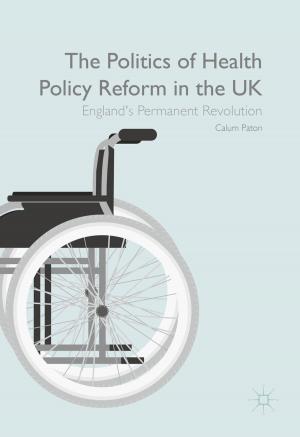Gender and HIV in South Africa
Advancing Women’s Health and Capabilities
Nonfiction, Social & Cultural Studies, Political Science, Government, Social Policy, Social Science| Author: | Courtenay Sprague | ISBN: | 9781137559975 |
| Publisher: | Palgrave Macmillan UK | Publication: | March 16, 2018 |
| Imprint: | Palgrave Macmillan | Language: | English |
| Author: | Courtenay Sprague |
| ISBN: | 9781137559975 |
| Publisher: | Palgrave Macmillan UK |
| Publication: | March 16, 2018 |
| Imprint: | Palgrave Macmillan |
| Language: | English |
This book addresses the ongoing problem of HIV in black South African women as a health inequity. Importantly, it argues that this urgent problem of justice is changeable. Sprague uses the capabilities approach to bring a theory of health justice, together with multiple sources of evidence, to investigate the complex problem of HIV and accompanying poor health outcomes in black South African women. Motivated by a concern for application of knowledge, this work discusses how to better conceptualise what health justice demands of state and society, and how to mobilise available evidence on health inequities in ways that compel greater state action to address problems of gender and health.
HIV in women, and possible responses, are investigated on four distinct levels: conceptual, social structure, health systems, and law. The analysis demonstrates that this problem is indeed modifiable with long-term interventions and an enhanced state response targeted at multiple levels. This book will be of interest to academics and students in the social health sciences, gender and development studies, and global health, as well as HIV/health activists, government officials, policy makers, HIV clinicians and health providers interested in HIV.
This book addresses the ongoing problem of HIV in black South African women as a health inequity. Importantly, it argues that this urgent problem of justice is changeable. Sprague uses the capabilities approach to bring a theory of health justice, together with multiple sources of evidence, to investigate the complex problem of HIV and accompanying poor health outcomes in black South African women. Motivated by a concern for application of knowledge, this work discusses how to better conceptualise what health justice demands of state and society, and how to mobilise available evidence on health inequities in ways that compel greater state action to address problems of gender and health.
HIV in women, and possible responses, are investigated on four distinct levels: conceptual, social structure, health systems, and law. The analysis demonstrates that this problem is indeed modifiable with long-term interventions and an enhanced state response targeted at multiple levels. This book will be of interest to academics and students in the social health sciences, gender and development studies, and global health, as well as HIV/health activists, government officials, policy makers, HIV clinicians and health providers interested in HIV.















